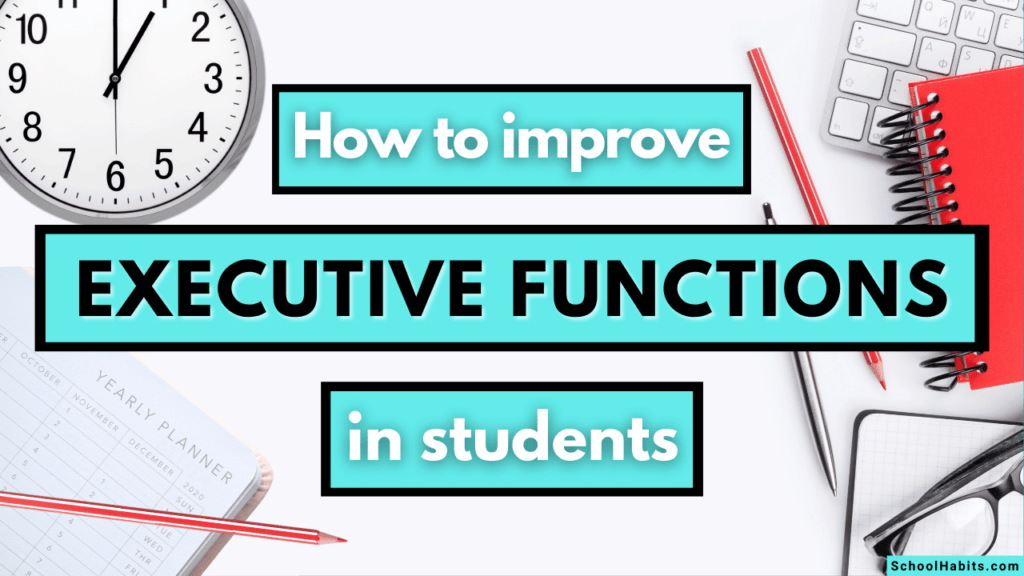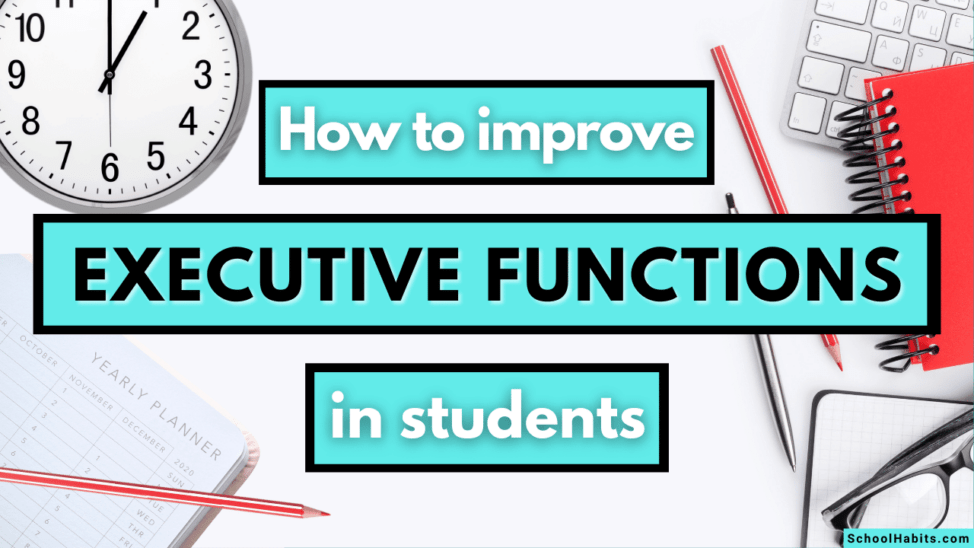
By Katie Azevedo, M.Ed.
As an executive function (EF) coach, I specialize in ADHD and other disabilities that impact students’ abilities to manage the intersection of academics and self-management. In other words, I teach how to improve executive functions in students.
Executive functions are the skills required to run all aspects of daily life, including learning, working, controlling impulses, and navigating relationships. Many people with ADHD have poorly developed executive functions.
Executive function skills include:
- working memory
- impulse control
- organization
- time-management
- flexible thinking
- planning
- reflective processing
Most people with executive functioning deficits – no matter their age – have difficulty starting tasks, completing work on time, staying organized, planning, and completing activities that require self-management.
Whenever I speak with potential clients for the first time, the most common complaints I hear from parents are that their child can’t stay organized, isn’t completing assignments on time, and is a chronic procrastinator.
If you suspect your child (or you!) has executive functioning deficits, then they will likely suffer from the majority of issues listed below. Students with executive functioning deficits, with or without ADHD, often have difficulty with the following:
- managing school and activities
- keeping track of homework
- turning in assignments on time
- remembering information
- staying focused in class
- studying for tests
- staying organized
- managing time inside and outside of school
- planning long-term projects
- controlling impulses
- reflecting on past experiences
- thinking flexibly
- taking notes
How to improve executive functions in students: 3 pillars
In my experience, the key to improving executive functions in students has three components: explicit instruction, repetition, and commitment to systems.
1. Explicit instruction
A student with executive dysfunction needs to be explicitly taught specific self-management skills. Someone with typical EF performance will mostly learn these skills passively as they move through the education system and adolescence. Typical students tend to “figure out what works” as they go, and adjust as needed. On the other hand, a student with ADHD or general EF dysfunction does not learn these skills through passive experience; they need clear and explicit instruction in time-management, planning, metacognition, concentration, task-completion and more.
2. Repetition
Repetition is the second key when I’m teaching how to improve executive functions in students. EF deficits impact concentration, metacognition, and working memory – all challenges that pose obstacles to learning and implementing new information. In my EF coaching sessions, I utilize significant repetition and structure when explicitly teaching EF skills. While repetition is the key to learning for all students, it’s particularly imperative for those with ADHD or EF deficits.
If you’re the parent of a child with ADHD or EF deficits, you might be familiar with the “I’ve told you this a million times!” battle. Someone with executive dysfunction needs to be told a million times before they store the information (unless they consider the information personally novel or urgent, which is not most of the time); this is just how their brain works.
3. Commitment to systems
Without question, the third pillar for how to improve executive functions in students is the student’s commitment to systems. A student (or adult!) with EF deficits must depend on systems if they want any chance of breaking old patterns. This third key is easier said than done, however, as those with ADHD or EF dysfunction can be notably independent (stubborn!) and resistant to systems. This resistance is often attributed to a categorical denial of there being anything wrong in the first place.
Whereas EF deficits impact working memory, I argue that the most critical system to implement and commit to is a calendar / task-tracker. Once this system is in place, we can begin to look at study routines, organization habits, and homework systems.
While improving executive functions in students is a process that takes focused instruction and student commitment, the good news is that it is possible.

